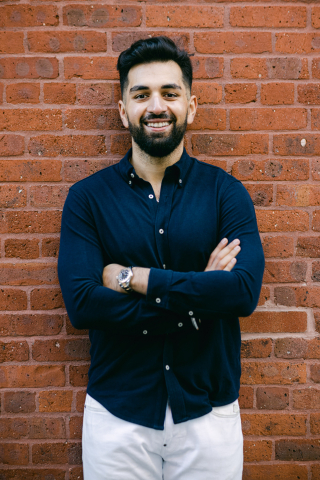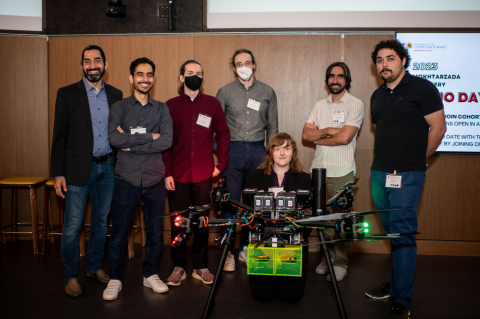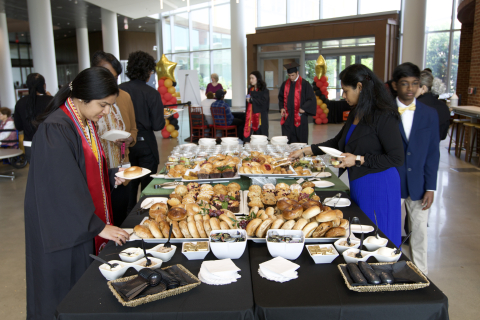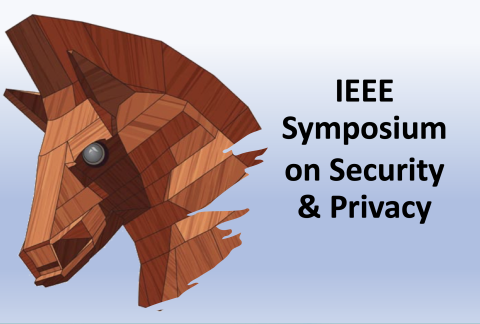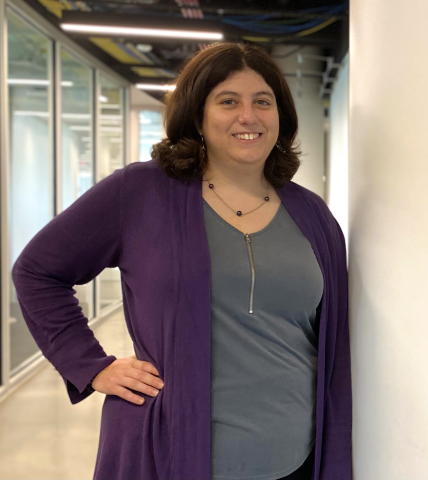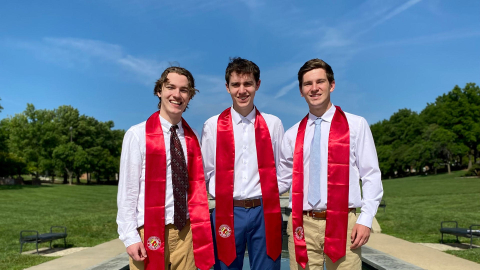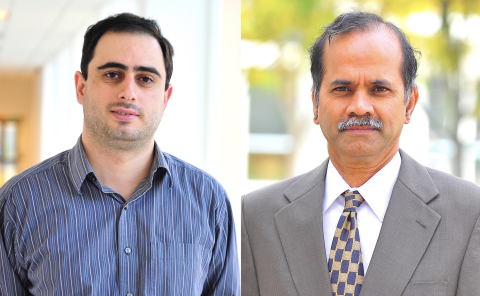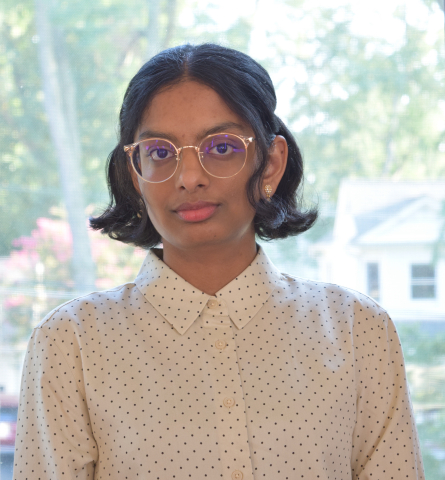Recent News & Accomplishments
2023
Adonis uses artificial intelligence to automate insurance company and health care provider payment collection processes.
University of Maryland alum Akash Magoon (B.S. ’18, computer science), a visionary entrepreneur and tech innovator, is making waves as CEO of Adonis —a company named after the Greek god of renewal. Adonis, which recently received $17.3 million in Series A funding, uses artificial intelligence to bridge the gap of one of the medical sector’s most overlooked issues: automating insurance company and health care provider payment collection processes. “We knew that in the medical provider ecosystem, there needed to be a new company that was taking a renewed approach to how everyone was thinking... read more
From tackling food insecurity to fostering cultural exchanges, UMD students and alums are positively impacting communities through their newly formed companies.
What if drones could deliver produce to people in food-insecure areas or an app could help farmers in developing countries secure loans? These are just a couple of the ideas that University of Maryland students and alums turned into full-fledged businesses with help from the Mokhtarzada Hatchery , a startup incubator in the Department of Computer Science. To celebrate their success over the last academic year, the four 2022-23 teams showcased their startups at the second annual Demo Day event on May 8, 2023. Haroon Mokhtarzada, who founded the hatchery with his brothers Idris and Zeki in 2021... read more
The University of Maryland’s Department of Computer Science recently held a graduation commencement ceremony that celebrated the success and achievements of its outstanding student body. This year the department handed out degrees to its undergraduate and graduate students in programs that include cybersecurity, data science, machine learning and quantum information. With such a complex mix of contemporary fields, it shouldn’t be a surprise that the University of Maryland is ranked among the top schools in the nation in computer science. In addition, the students were among the best in the... read more
Researchers affiliated with the Maryland Cybersecurity Center (MC2) had nine papers accepted to the 44th IEEE Symposium on Security and Privacy (IEEE S&P), including one that received a distinguished paper award. The annual conference is the premier forum for presenting developments in computer security and electronic privacy, bringing together researchers and practitioners in the field. It is being held this year from May 22–25 in San Francisco. Two of the nine papers will appear at the Seventh Workshop on Technology and Consumer Protection (ConPro ’23), a co-located workshop that... read more
Michelle Mazurek , an associate professor in UMD's Department of Computer Science and director of the Maryland Cybersecurity Center (MC2), was recognized with a IEEE Security and Privacy Test of Time award for a paper she co-authored in 2012 that presents a novel, efficient technique for evaluating password strength. She was honored at the 44th IEEE Symposium on Security and Privacy (IEEE S&P), held this year from May 22–25 in San Francisco. The Test of Time award recognizes papers published at IEEE’s flagship security conference that have made a lasting impact on the field. To qualify, a... read more
University of Maryland alum Isha Angadi (B.S. ’21, computer science; M.P.S. ’22, data science and analytics) is set to be the master’s student speaker at the College of Computer, Mathematical, and Natural Sciences’ Graduate Commencement Ceremony on May 22, 2023. Returning to her alma mater holds immense significance for Angadi, evoking a mix of joy and wistfulness as she reflects upon her six transformative years at UMD. During the COVID-19 pandemic, she missed the pomp and circumstance of walking across the stage when she graduated with her bachelor’s degree in May 2021. And then winter... read more
50th-Anniversary Graphics and Tagline Design Competition Dear Computer Science students, The Department of Computer Science will be celebrating its 50 th Anniversary on Oct 6-7, 2023. This “golden” anniversary represents an opportunity for us to reflect on our history, propel our department to even greater success in the decades to come, share that with the world, and showcase the contributions that many of us have made in this endeavor. While the details of the event are being worked out, we welcome you to participate and showcase your creativity by designing 50th-anniversary graphics and a... read more
Triplet Brothers Earn Degrees From CMNS
When they were kids, Hunter, Tanner and Walker Owen’s mother dressed the triplets in matching outfits in their signature colors: green, yellow and red. Next week, they’ll again dress the same, this time all in black, as they march across the commencement stage as new graduates of the University of Maryland. The three young men, all fraternal, may not look enough alike to prompt misdirected hellos at the dining hall, but their paths through the university have been remarkably similar. The trio are all completing their bachelor’s degrees from the College of Computer, Mathematical, and Natural... read more
Mohammad Hajiaghayi from the Department of Computer Science, who holds the Jack and Rita G. Minker Professorship, and Rama Chellappa , a Bloomberg Distinguished Professor, are being recognized by the Washington Academy of Sciences with the organization’s highest honor, the Distinguished Career Award. Since 1940, the Washington Academy of Sciences has recognized top scientists in the region for their scientific achievements and leadership, with the Distinguished Career Award acknowledging scientists and scholars that have had a significant impact on their respective fields of study. Hajiaghayi... read more
Sadia Nourin, a senior graduating in May 2023 with bachelor’s degrees in computer science and finance from the University of Maryland, received one of three 2023 Internet Society Pulse Research Fellowships. Her research proposal was selected from 82 submissions submitted from 35 countries. With this funding that supports developing data-driven analyses or tools that advance a more reliable internet, Nourin will spend the next six months developing a novel method for detecting internet disruptions in countries where it is hard to get local vantage points. Following software engineering... read more
